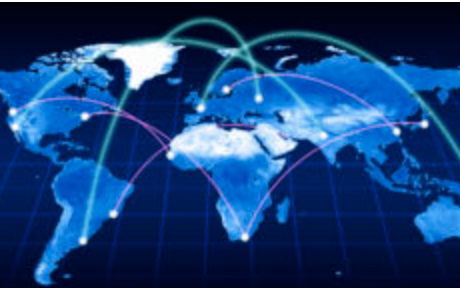
Mike Pence on Leadership and the Future of the Republican Party
Former US Vice President Mike Pence looks back on the events of January 6 2021, his final days in office with President Trump and his…
Thought Leader: Mike Pence

From the faint echoes of Sputnik’s signals to the awe-inspiring sight of the first moon landing, my fascination with technology and the future was kindled at an early age. This curiosity propelled me to work with pioneering implementations of electronic funds transfer in the 1970s and venture into the software industry when it was still a novel concept! By the 1980s, I was navigating the nascent fields of eCommerce and AI, and by 2003, I was leading the Commercial Division of an AI company.
In roles as an end user, technology provider, and consultant, I’ve implemented disruptive systems leveraging emerging technologies for a multitude of enterprises across diverse public and private sector industries. As a professional speaker, I’ve had the privilege of engaging with thousands of organizations in dozens of countries worldwide. This extensive experience has equipped me with a uniquely balanced perspective on emerging technologies and disruptive change, a perspective I’m eager to share as we delve into the emerging autonomic economy together.
Imagine if our economy could operate like our autonomic nervous system – under human oversight but with day-to-day operations running independently and automatically. Welcome to the concept of the Autonomic Economy, a vision of the future where AI, IoT, and blockchain converge to create self-regulating systems across various industries.
This isn’t a distant dream. We’re already seeing glimpses of this autonomic economy. Autonomous vending machines serve us snacks, and driverless ridesharing is on the horizon. But the real transformation lies in the creation of autonomic sub-economies within different industry sectors and business ecosystems, where routine operational activities are fully automated.
In this future, humans will set the overall strategy and goals, establish operating decision rules and parameters, and manage exceptions when automated systems encounter circumstances requiring human judgment, creativity, or experience. It’s a shift that promises to revolutionize how we do business, offering increased efficiency, reduced costs, and the potential for unprecedented innovation.
But to navigate this shift successfully, leaders must understand the strategic imperative of the autonomic economy. It’s not just about implementing new technologies; it’s about reimagining how our organizations operate at a fundamental level.
In the coming weeks, we’ll delve deeper into this topic, exploring real-world examples of autonomic systems in action and discussing the practical considerations of implementing these systems. We’ll also examine the human side of this equation, discussing how we can make these autonomous experiences feel more empathetic and human.
The dawn of the autonomic economy is here. It’s time for leaders to rise to the challenge and guide their organizations into this exciting future. Stay tuned, engage with us, and let’s navigate this journey together.
Mike Pence on Leadership and the Future of the Republican Party
Former US Vice President Mike Pence looks back on the events of January 6 2021, his final days in office with President Trump and his…
Thought Leader: Mike Pence
Marc Short on U.S. Investment in Critical Minerals
Why do critical minerals matter now? Marc Short explains how U.S. investment in critical minerals fits into a broader strategy around economic security, manufacturing, and…
Thought Leader: Marc Short
Marc Short on AI Policy and the Government’s Role in Chip Technology Investment
On CNBC, Marc Short breaks down the role of AI policy and how government investment is shaping the future of chip technology. A former Chief…
Thought Leader: Marc Short

